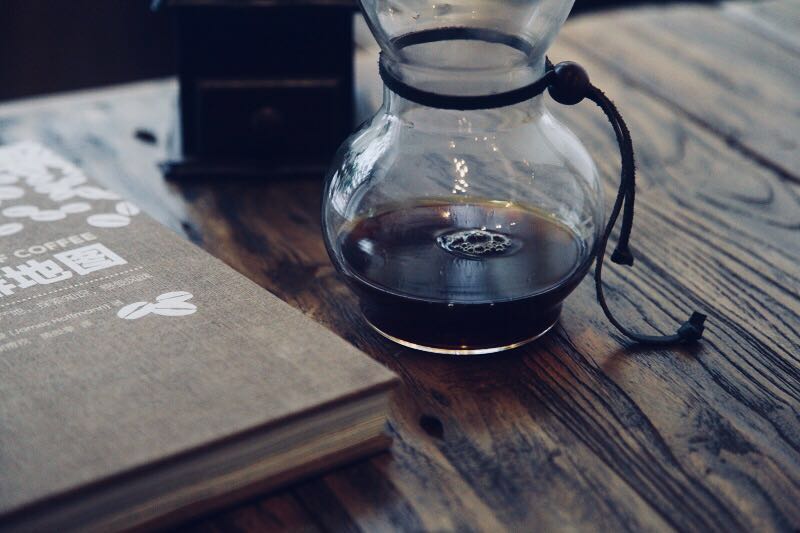China's local coffee brand-Pacific Coffee joins Pacific Coffee what is the best?
The official website of Pacific Coffee

Professional coffee knowledge exchange more coffee bean information please follow the coffee workshop (Wechat official account cafe_style)
Pacific Coffee, a slightly artistic and serious Hong Kong cafe, has opened 164 stores (307 worldwide) since it entered the mainland in 2011, making it the only local coffee brand that can compete with Starbucks from the United States and COSTA from the United Kingdom.
Struggle pie coffee
Compared with Starbucks and COSTA, Pacific Coffee is more "business" and "struggling".
When the Tom Neir couple left Seattle to work in Hong Kong in 1992, Starbucks (Starbucks), which originated in their hometown of Seattle, had more than 100 stores and was successfully listed on Nasdaq a year ago. The Tom Neir couple, who have become accustomed to life in Starbucks and cafes, find that there are no cafes to their satisfaction in Hong Kong. So they decided to create a cafe to meet their needs and call it Pacific Coffee (Pacific Coffee).
The first Pacific Coffee store opened in Central, Hong Kong's financial centre, where Hong Kong's famous bankers, lawyers and accountants gather.
Every mindset of sitting down for a cup of coffee can make a cafe. No matter how invincible the competitors you face, the important thing is, do you know why your coffee is unique?
At the beginning of its opening, Pacific Coffee was somewhat similar to Starbucks, emphasizing the third space of home and company. But in Hong Kong, which is famous for its small household area, morning tea, restaurants and even small tea shops on the side of the road all assume a similar function of the third space. Pacific Coffee targets business people like the Tom Neir themselves, who need a more relaxed but convenient workspace outside the office.
As a result, Pacific Coffee lacks a bit of Starbucks relaxed atmosphere, but adds more business atmosphere. Therefore, in the store decoration and service, Pacific Coffee provides more matching features. For example, the Wi-fi is now standard in coffee shops, but Pacific Coffee installed Internet-connected computer devices in 1996, when personal computers were still part of the minority.
As a result, Pacific Coffee has become a place for struggling people to take a nap in Hong Kong's frightening and exhilarating office world-and of course, don't forget that all breaks are for better fighting.
Early Pacific Coffee shared "Thought for the day" on the blackboard every day to encourage young people to start a business. This habit continues to this day. Not long ago, Pacific Coffee CEO Lanyi also mentioned in an internal speech that the daily golden sentence is the embodiment of Pacific Coffee "bookish style", and "bookish style" is the five core elements of Pacific Coffee brand.
Now, "in Hong Kong stores, there will be a more obvious difference between our customers and Starbucks customers." Most of our clients are professionals in their 28s and 30s, and many of them come here in suits to talk business. " Tang Guojiang, who led Pacific Coffee to develop the mainland market, once told reporters. Indeed, with a little attention, we can see the characteristics of different coffee brands. Starbucks' American accent attracts more young people, COSTA's lazy afternoon tea style focuses on more female consumers, and carving time and coffee are places for literary and artistic youth gatherings.
After 20 years of development, Pacific Coffee has gradually become the second largest coffee chain in Hong Kong, with 122 stores, second only to Starbucks. During this period, the ownership of Pacific Coffee has also been changed twice. In July 2010, China Resources Venture, a Hong Kong-listed company of the China Resources Group, bought an 80 per cent stake in Pacific Coffee for HK $327 million.
However, after all, Hong Kong is restricted by area and the market capacity is limited, so it is very difficult for Pacific Coffee to make a bigger breakthrough. With the increasing acceptance of coffee by Chinese consumers, domestic and foreign brands are pouring into the mainland. Starbucks founder Howard. Schultz has said that China is about to become Starbucks' largest market after the US market. Even the sculpture time, which seems to be difficult to replicate, has more than 40 stores. In addition, ManCoffee, which claims to be located between Starbucks and sculpture time, has opened 40 stores within two years, and plans to expand to 200 nationwide within two years.
Entering the mainland has become an important strategy for the future development of Pacific Coffee. At the beginning of 2011, Pacific Coffee officially entered the mainland market. In order to adapt and promote the realization of the strategy of mainland China, Pacific Coffee headquarters will also be moved from Hong Kong to Beijing in 2013.
New market, new partner
Pacific Coffee needs new and strong partners in a market full of giants and newcomers.
When Pacific Coffee sounded the horn of entering the mainland, Starbucks had been ploughing deeply in the mainland for 20 years. Although COSTA had not been in China for a long time, it relied on its successful experience in the UK and the background of Hualian to quickly run the enclosure. The competition of coffee brands is self-evident.
Fortunately, Pacific Coffee can also use the resources of its new owner, China Resources Wanjia and other business sectors of China Resources Group, to help it expand its territory. For example, China Resources Group has a lot of commercial real estate in first-and second-tier cities in mainland China, such as Vientiane City, China Resources Land Plaza, and so on. Pacific Coffee can make use of these resources when choosing the site. Second, China Resources Wanjia's many years of retail experience and strong supply chain, these resources can also be used by Pacific Coffee.
Compared with today's competitors, the most important feature of Pacific Coffee is its reliance on B2B business.
As early as 1995, Pacific Coffee established a corporate coffee service department to provide a variety of coffee solutions for the catering industry, including hotels, restaurants, clubs and so on. Since then, the business scope of Pacific Coffee Enterprise Service has been expanding, with Hong Kong-style commercial flexibility, gradually began to provide a variety of coffee solutions for some companies or office buildings. Some open miniature Pacific Coffee stores directly into office buildings, while others provide coffee makers and service staff in the company's pantry.
In October 2011, Pacific Coffee launched a capsule coffee machine, which was promoted in banks, hotels, apartments and other corporate customers in Hong Kong and Macau, and received good market feedback. In April 2012, the capsule coffee machine was officially launched in the mainland.
The so-called capsule coffee machine means that manufacturers put coffee powder into a plastic capsule in advance, and as long as they put the capsule into a special machine, they can quickly produce a cup of strong coffee. Both the quality and price of the capsule coffee machine are between freshly ground coffee and instant coffee.
"there is a broad market for corporate coffee services, and we are better than Starbucks and COSTA to take the lead in launching capsule coffee machines in the market, so as to turn the first-mover advantage into a real market advantage and profit advantage." Lan Yi said that for the capsule coffee machine, Pacific Coffee has a lot of expectations.
Coffee capsule machine is not only for corporate customers, the development of the retail market is also going hand in hand. The price of the capsule coffee machine sold in Pacific is 2680 yuan, and the price of a box of 16 capsules is 88 yuan. There is no doubt that most of the consumers of these products are people who have a certain economic ability and attach more importance to the quality of life. This has a great coincidence with the consumers of China Resources Wanjia Ole' boutique supermarket. Therefore, in December 2012, the first PCC × Ole' capsule coffee machine concept store opened in Guangzhou Taiguhui Ole' boutique supermarket. In the future, Ole' will be used as one of the sales channels for capsule coffee machines.
In both Hong Kong and the mainland, Pacific Coffee is developing at a faster-than-expected speed, but Pacific Coffee still has problems to be solved in the future. after all, competitors are brands with a long history and more experienced brands. at the same time, they have completed the initial development of the Chinese market.
Important Notice :
前街咖啡 FrontStreet Coffee has moved to new addredd:
FrontStreet Coffee Address: 315,Donghua East Road,GuangZhou
Tel:020 38364473
- Prev

Pacific Coffee Chinese website _ Pacific Coffee how to join Pacific Coffee
Professional coffee knowledge exchange more coffee bean information please follow the coffee workshop (Wechat official account cafe_style) 1. Project introduction Pacific Coffee (Pacific Coffee) was born in Hong Kong in 1992 and was acquired by China Resources in 2010, becoming its only coffee chain brand. In 2011, Pacific Coffee officially
- Next

Humbera Sakuran, the boutique coffee producing area of Humbera Coffee, the New pre-season Coffee in 2021
Ethiopian Sidamo Shakisso Natural Sakui 01 | Humbera Hambela village-level treatment plant is located in Guji, Guji District. In recent years, Humbera has grown rapidly in terms of quantity and quality, and has obtained organic certification. The water washing and sun-drying batches of coffee produced have the characteristics of good cleanliness. Humbera treatment Plant is operated by METAD Agricultural Company, and METAD was founded at
Related
- What documents do you need to go through to open a coffee shop? coffee shop coffee shop certificate processing process
- How to purchase Coffee beans in small Cafe how to choose a suitable supplier for domestic Coffee supply Company
- How to drink Starbucks Fragrance White Coffee? how to make Australian White Coffee? what Italian coffee beans are recommended?
- The Story of Flora Coffee: the name of Flora Coffee Bean and the implication of the Flowers on Florna Coffee
- How much does a cup of coffee cost? How much is the profit of a cup of coffee? What is the profit of the coffee shop in a year?
- Yunnan small Coffee, known as "fragrant Coffee", introduces the characteristics of Alpine Arabica Coffee producing areas in Yunnan, China
- 2023 latest Starbucks full menu price list how much is a cup of Starbucks coffee what is better to drink the most popular hot and cold drinks recommended
- Starbucks different kinds of Coffee Price list Starbucks menu 2023 Top Ten Best drinks in Starbucks
- Starbucks Spring praise Comprehensive matching Coffee Bean theme Story Packaging implication and taste description
- The cost of a cup of coffee latte American coffee cost price and selling price

